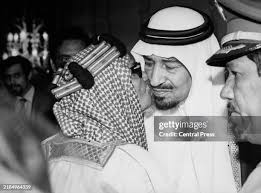The Role and Significance of the King of Saudi Arabia

Introduction
The role of the King of Saudi Arabia is one of immense importance, not only to the kingdom but also in the context of global politics and economics. As the leader of a nation that is a key player in global oil markets and a significant contributor to Islamic faith and culture, understanding the current King’s policies and influence is vital for comprehending both regional stability and international relations.
Current King and His Policies
As of 2023, King Salman bin Abdulaziz Al Saud has been at the helm since January 2015. At 87 years old, his reign has marked significant transformations within the kingdom, particularly through the Vision 2030 initiative led by his son, Crown Prince Mohammed bin Salman. This ambitious reform agenda aims at diversifying the Saudi economy away from its dependency on oil and promoting social reforms including women’s rights, entertainment, and tourism.
Under King Salman’s leadership, Saudi Arabia has also taken a more assertive role in regional politics. The kingdom’s involvement in Yemen, its diplomatic efforts in Lebanon, and its relations with Iran and other Gulf States highlight its strategic significance in Middle Eastern affairs. Furthermore, the King has overseen the country during times of notable global crises, including the COVID-19 pandemic, affecting both health and economic conditions within the kingdom.
International Relations and Economic Impact
King Salman’s tenure has also seen a fluctuation in relations with Western countries, particularly after the murder of journalist Jamal Khashoggi in 2018. Despite international condemnation, Saudi Arabia’s economic collaborations, especially regarding oil production and investments, have kept relationships intact albeit under strain. The ongoing U.S.-Saudi alliance focuses heavily on energy security and arms sales, significantly influencing both countries’ economies.
Moreover, the King has been pivotal in fostering relations with Asian economies, as seen through numerous economic agreements with China and India, aiming to boost foreign investment in Saudi Arabia.
Conclusion
The position of the King of Saudi Arabia holds significant weight not only within the Middle East but in the global arena. King Salman, through his policies and leadership style, illustrates the balancing act required in navigating modern challenges while preserving traditional values. As Saudi Arabia continues to adapt to global changes under Vision 2030, the king’s influence will be critical in shaping the future landscape of both the nation and international relations, highlighting the ongoing importance of this position.








